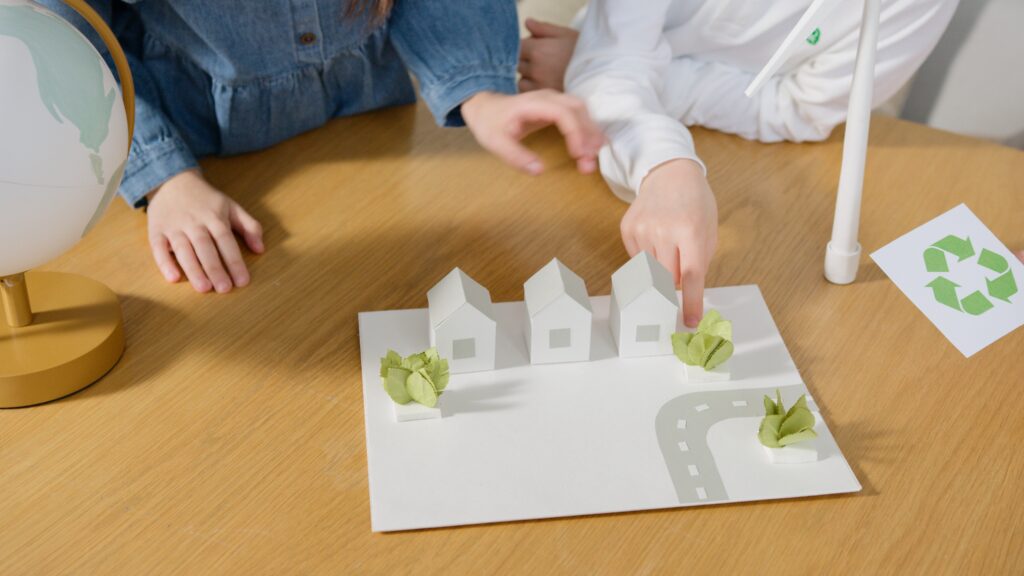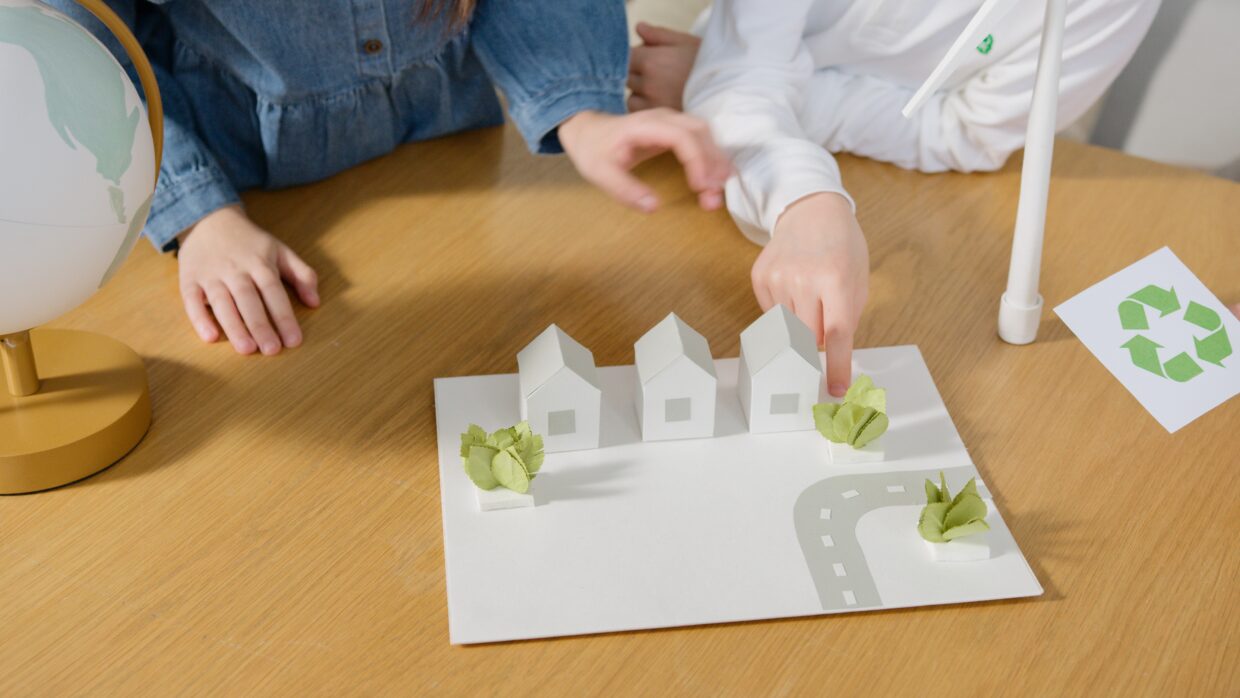
Survey link: https://forms.gle/jXZzUfjxsMdjqTYB7
Research question:
What role does environmental education and energy literacy play in shaping the national energy transition in Germany?
Research summary:
Germany has undergone massive transformations in its energy infrastructure and policy to transition away from fossil fuels, with the aim of mitigating the nation’s contribution to climate change and increasing its energy security. Despite its success over the last decade, renewable and nuclear energy sources still make up less than half of Germany’s total energy supply (Germany – Countries & Regions, 2020). Shifting socio-technical regimes takes time and hinges on particular cognitive abilities, affective dispositions, and behavioral outcomes (Hermwille, 2016; DeWaters & Powers, 2013). The Energiewende is the work of both German society today and future generations of decision-makers. This research will explore if and how education supports energy literacy among young people, thereby promoting the energy transition and its underlying goals. The if will be largely addressed through surveys conducted in Germany with parents and caregivers of young people, as well as potential school visits. The how will be primarily addressed through literature exploring existing models of environmental education and how they shape and are shaped by national energy agendas. This research will operate out of the assumption that environmental education and energy literacy are important tools for shifting socio-technical regimes and realizing the Energiewende’s ambitious goals (Bridge et al., 2018, p. 264).
One major insight from the literature is that the foundations for environmental education were developed in the 1980s and 90s when behavior change and resource conservation were seen as adequate pathways to address environmental problems (Jorgenson et al., 2019). Just as the energy transition is demanding new policy, technology, and ways of thinking nationally, so too is environmental education happening in homes and schools. Another key finding is that “consumption patterns are widely discussed in school education” in Germany and that they are often accompanied by a “moral code” whereby behaviors can be considered “good” or “bad”. This study also found that environmental education often encounters a tension between communicating “universal values” to young people that prescribe attitudes and behaviors versus encouraging “reflexivity and critical thinking” in shaping their futures (Kowasch & Lippe, 2019).
References
Bridge, G. (2018). Energy and society: A critical perspective. Routledge.
DeWaters, J., & Powers, S. (2013). Establishing Measurement Criteria for an Energy Literacy Questionnaire. Journal of Environmental Education, 44(1), 38–55. https://doi.org/10.1080/00958964.2012.711378
Germany—Countries & Regions. (2020). IEA. https://www.iea.org/countries/germany
Hermwille, L. (2016). The role of narratives in socio-technical transitions—Fukushima and the energy regimes of Japan, Germany, and the United Kingdom. Energy Research & Social Science, 11, 237–246. https://doi.org/10.1016/j.erss.2015.11.001
Jorgenson, S. N., Stephens, J. C., & White, B. (2019). Environmental education in transition: A critical review of recent research on climate change and energy education. The Journal of Environmental Education, 50(3), 160–171. https://doi.org/10.1080/00958964.2019.1604478
Kowasch, M., & Lippe, D. F. (2019). Moral impasses in sustainability education? Empirical results from school geography in Austria and Germany. Environmental Education Research, 25(7), 1066–1082. https://doi.org/10.1080/13504622.2018.1557112

Yukti February 18, 2023
Dear Claire,
Thank you for sharing your research question and summary. It’s interesting to see how environmental education and energy literacy can play a crucial role in shaping the national energy transition in Germany.
From what I understood, the research will explore the link between environmental education and energy literacy in young people, and how this can promote the energy transition and its goals. I appreciate how your research will also examine the tension between communicating universal values and encouraging critical thinking in shaping young people’s futures.
Personally, your post made me think about how education can be a powerful tool in creating long-lasting change, especially in addressing climate change. It’s encouraging to see that consumption patterns are being discussed in school education in Germany, along with a moral code for behaviors.
I would like to know more about the potential challenges that may arise in implementing effective environmental education and energy literacy programs. What are the obstacles that may hinder the success of such programs, and how can they be overcome?
Sara Alblooshi February 19, 2023
Dear Claire,
It was great to hear about your research question and the research that you have done in order to ensure this research would lead to great findings. Exploring whether there is a correlation between environmental education and energy literacy is quite interesting and essentially how that plays a role in further promoting energy transition and its goals that they are aiming to achieve.
Personally, I am intrigued by your research question since I have never thought of environmental education potentially having a great impact as it is briefly touched upon in education systems. Also, iin order to shape the energy transition that the country plans to achieve, we are frequently told what must be done, yet it is rarely achieved.
Consequently, that leads to my question, I would like to know if you believe that environmental education and energy literacy are sufficient methods for achieving the goal of energy transition, or are other methods also required (e.g. government regulations).
Ziwei February 19, 2023
Dear Noah,
Thank you for sharing your research question and the information you provided in your post. I didn’t know that Germany was transitioning to using green energy before reading your post.
From what I understand, the research will examine how the government of Germany or the EU transitioned from coal and how they implement policies to relieve and assist citizens. It is interesting that you ask this question because I have always focused on the positive aspects of the transition to green energy. However, I haven’t really considered how it will affect people. As a result, I am very interested in your research topic and I am curious about what government investments and programs are in place to assist this transition.
I would like to ask you that if effective policies and programs are implemented to assist the transition, what challenges may arise? The government’s perspective may be as well as the citizen’s perspective.
Aydrarus Abdi February 19, 2023
Hello Claire,
Thank you for sharing this informative and thoughtful research on the role in environmental education and energy literacy play in shaping the national energy transition in Germany. If I understand correctly, your research aims to explore if environmental education and energy literacy in young people can support Germany’s goal of national energy transition. Specifically, you intend to discuss how national energy agendas shape and are shaped by environmental education models. This research makes me interested and hopeful to see that education can play a crucial role in the energy transitioning agenda. It’s inspiring to see that consumption patterns are widely discussed in school education in Germany, and it’s interesting to note the tension between communicating universal values and encouraging critical thinking in shaping young people’s attitudes and behaviors. One piece of information I can add is that formal and informal education as well as the media can play a significant in promoting energy literacy. For example, online campaigns can rase public awareness and so on. Based on your research, what are some actions policy makers, educators, and communities can take to promote the national energy transition?
Marian February 19, 2023
Hi Claire,
Your research on the role of education in promoting energy literacy among young people in Germany is fascinating. The Energiewende is an ambitious project that requires collective effort and long-term planning to achieve its goals, and it’s honestly very heartening to see that you’re exploring the potential of education in contributing to this effort, I salute you!
I appreciate the insights you’ve shared in your post about the tension between communicating universal values and promoting critical thinking in environmental education. It’s essential to strike a balance between these two approaches to help young people develop the skills and knowledge necessary to navigate the complex socio-technical regimes that the energy transition requires.
I’m so curious to know more about the specific methods you plan to use in your research, particularly the surveys you plan to conduct with parents and caregivers of young people. I also wonder how you plan to measure the effectiveness of environmental education in promoting energy literacy and contributing to the goals of the Energiewende.
Last but not least, your research topic is timely and important, and I look forward to reading more about your findings and insights as your progress on your rearch.
Kind Regards,
Marian
Joseph Mary October 26, 2023
The Dollar General Survey Sweepstakes is an annual event where customers can provide feedback on their shopping experience. By completing the survey at https://www.dgcustomerfirstgiftcards.com/survey-page/, participants are entered into a sweepstakes to win various prizes. The 2023 sweepstakes is expected to attract a significant number of participants, with an approximate estimate of thousands of entries received by Dollar General, if not tens of thousands.
salvatore September 4, 2025
This is such a great resource that you are providing and you give it away for free.
1depositca October 16, 2025
The Energiewende is the work of both German society today and future generations of decision-makers. This research will explore if and how education supports energy literacy among young people
R D X GAMING December 26, 2025
Really Curious site this is.. I really Enjoy a lot reading your Blog.. I will Bookmark your site for more remark. pgwin138
R D X GAMING December 30, 2025
Quick the website will undoubtedly grow to be well known along with almost all working the weblog households, due to the painstaking content articles or evaluation content articles. phantom wallet download
R D X GAMING January 4, 2026
Superb work! This really is the type of info that should be shared around the web. Shame on the search engines for not positioning this post higher! Come on over and visit my internet site . Thanks =) rabby wallet download
R D X GAMING January 5, 2026
An impressive share, I just now with all this onto a colleague who has been doing small analysis on this. And hubby in fact bought me breakfast simply because I stumbled upon it for him.. smile. So ok, i’ll reword that: Thnx for your treat! But yeah Thnkx for spending enough time go over this, I feel strongly regarding it and love reading on this topic. If it is possible, as you grow expertise, would you mind updating your blog post to comprehend details? It is actually extremely ideal for me. Massive thumb up due to this post! slot rajabandot
Chris February 8, 2026
This page feels consistent and easy to navigate. Text is well structured. In the middle, aviator game online real money fits naturally within the flow. Fonts are readable. Layout balance stands out. Performance is smooth. The presentation feels professional and thoughtfully arranged.
Michael Mosley February 9, 2026
I play block blast every day since placing blocks strategically makes me feel smart and accomplished when I clear multiple lines smoothly.